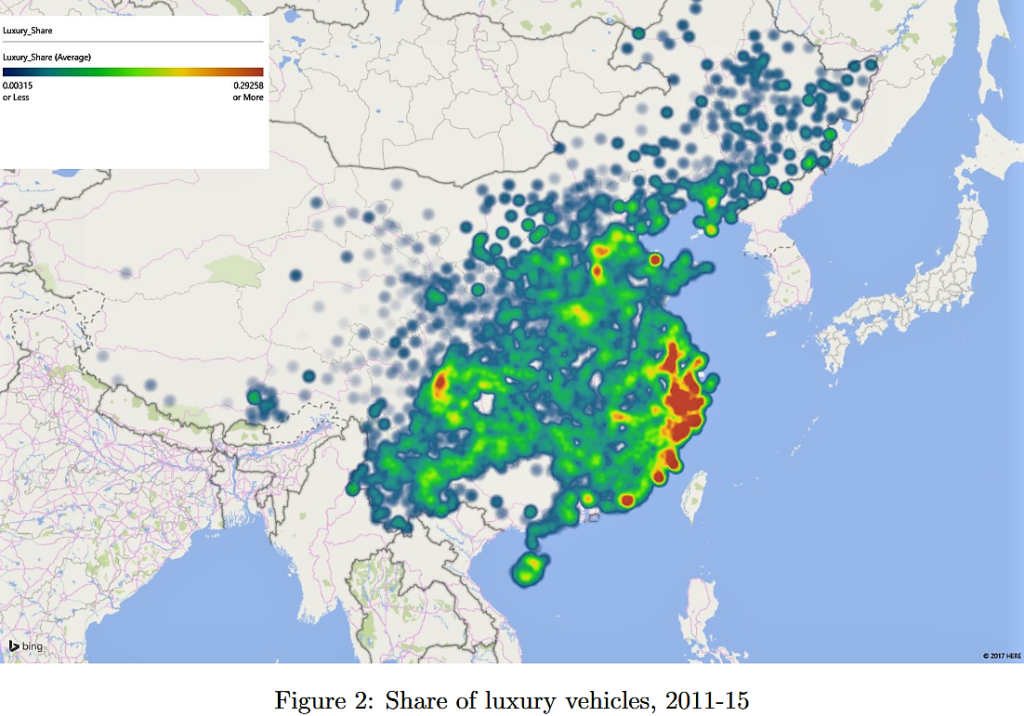Does corruption grease the economic wheel or is it sand in the gears? The question is perennial because corruption, by it’s very nature, is hard to gauge. The paper highlighted this week may be a landmark in addressing this question and, certainly, I’ve seen nothing like it with regards to China.
The authors, Nan Chen and Zemin (Zachary) Zhong of the Universities of California and Toronto respectively have taken car registration information from 99-million registrations between 2012 and 2016, as a consumption proxy, and conclude; China’s anti-corruption efforts are having a significant negative effect on consumption.
The vehicle registration information is detailed down to make, model and county sales level and is believed to be a more reliable indicator of local economic vitality than the more sketchy data compiled by local cadres. Against this data they were able to line up records of visits from a Provincial Committee of Discipline Inspection (PCDI), the front-line shock-troops of Xi Jin Ping’s anti-corruption initiative.
What they found was astonishing.
New vehicle registrations in counties visited by a PCDI drop on average 3.4%. The effects are manifest across the vehicle product range suggesting corruption runs up and down the economic ladder. Moreover the effect intensifies over time with an initial drop of 2% in the first three months and around 10% one year later. As the researchers note these effects are too big to be just the product of government officials changing consumption habits, non-government agents must also be a contributing factor. Bear in mind this is just details on auto sales. There must, in addition, be marked effects on all other discretionary consumer product sales.
So now we know. China’s anti-corruption campaign has had, and is probably still having, a negative effect on consumption; the economy is therefore being unequivocally retarded by the process.
Longer term we expect significant benefits to accrue as the Party reinforce their legitimacy in this process and the body politic’s confidence in leaders is raised; for now though de-greased wheels are turning more slowly than they did when lubrication was, er, more widely applied.
This link Effects of Anti-Corruption Campaigns will take you to the paper in full. Some interesting graphics like the one below from P. 17.
